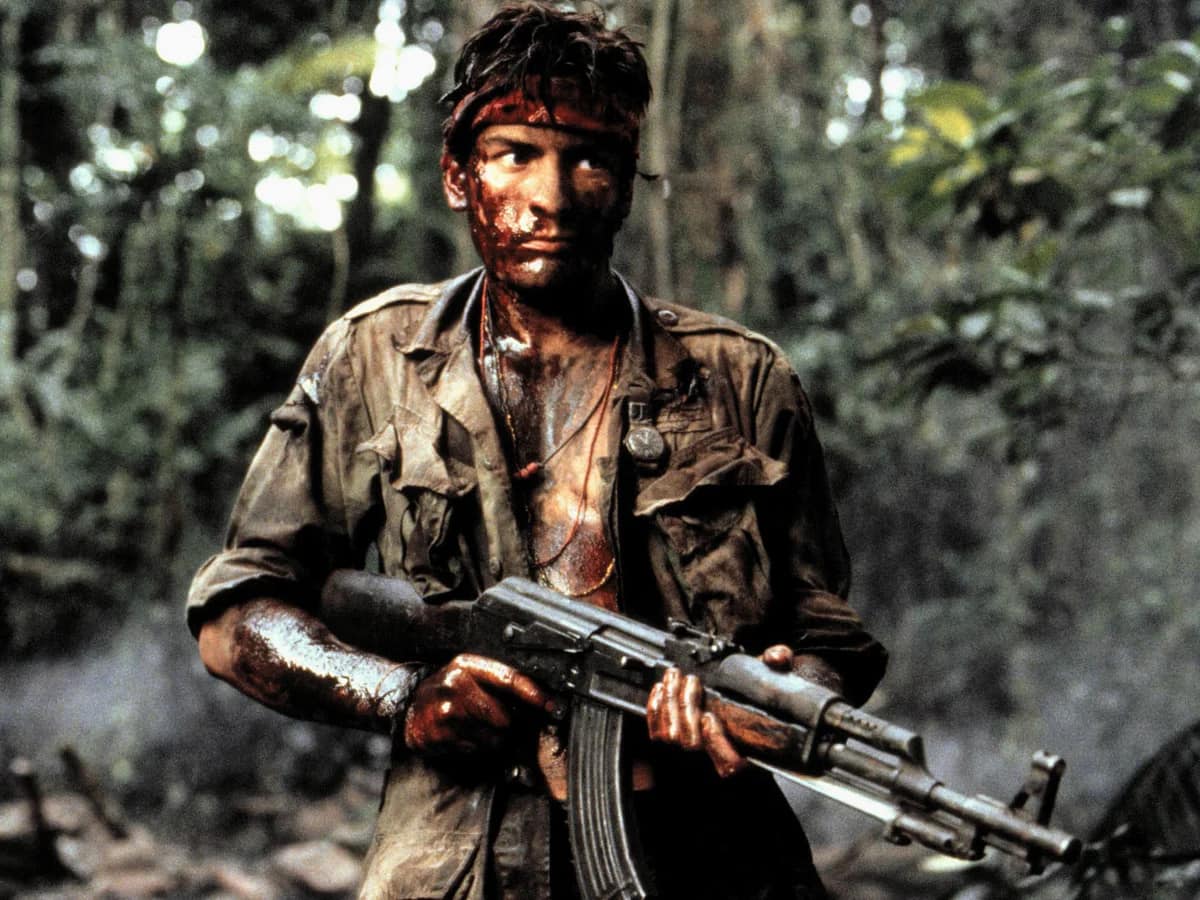Platoon (1986)

“Platoon” (1986): A Deep Dive into the Film’s Content and Themes
Platoon, directed by Oliver Stone, is a critically acclaimed war film that offers an unflinching portrayal of the Vietnam War. Released in 1986, the film draws heavily from Stone’s personal experiences as a Vietnam War veteran. The movie follows the journey of Chris Taylor (Charlie Sheen), a young soldier who enlists in the U.S. Army, leaving behind his comfortable life to fight in the grueling conflict. What unfolds is not only a brutal depiction of war but also a profound exploration of morality, human nature, and the battle between good and evil within individuals.
Plot Overview
At its core, Platoon focuses on Taylor’s moral and psychological journey as he navigates the horrors of war. Upon arriving in Vietnam, Taylor quickly realizes that the battlefield is not just about fighting the enemy—it’s about surviving the harsh physical environment, the constant threat of death, and the complex relationships with fellow soldiers.
The film is anchored by the conflict between two sergeants, Sgt. Elias (Willem Dafoe) and Sgt. Barnes (Tom Berenger). Elias represents morality and compassion, while Barnes embodies ruthlessness and survival at all costs. This stark contrast between the two figures forces Taylor into an internal struggle about which path he should follow, mirroring the larger conflict of right and wrong in the context of war. The film escalates as tensions within the platoon rise, leading to tragic violence not only against the enemy but also among the soldiers themselves.

Themes and Meaning
1. The Dehumanizing Nature of War
Platoon presents war as a destructive force that dehumanizes soldiers, turning them into instruments of violence. Throughout the film, we see soldiers losing their moral compass, committing atrocities that blur the line between right and wrong. Taylor’s transformation from an idealistic young man to someone forced to confront his own capacity for violence highlights how war strips individuals of their humanity.
2. The Duality of Man
A key theme in Platoon is the duality of man, symbolized by the opposing characters of Elias and Barnes. Elias represents the possibility of maintaining humanity and moral integrity, even in the face of brutality. In contrast, Barnes personifies the idea that war demands cruelty and amorality to survive. Taylor is caught between these two forces, ultimately symbolizing the internal battle each soldier faces when exposed to the horrors of war.
3. The Absurdity of War
Another central theme in Platoon is the absurdity of war itself. The film shows how senseless violence can erupt from paranoia, fear, and internal divisions. Soldiers turn on one another, villages are destroyed, and innocents suffer. Stone depicts war not as a heroic adventure but as a chaotic and senseless experience, where even victory feels hollow.
4. Psychological Trauma
Beyond physical harm, Platoon delves deeply into the psychological scars of war. Many soldiers, including Taylor, experience PTSD-like symptoms, haunted by their actions and the deaths of their comrades. The film illustrates how the emotional toll of war lingers long after the physical battle is over.

Conclusion
Platoon is a raw and powerful film that provides an unfiltered look at the Vietnam War through the lens of one soldier’s experience. It rejects the glamorization of combat, focusing instead on the moral ambiguities, the psychological trauma, and the internal struggles that come with warfare. Through its vivid depiction of the clash between good and evil, Platoon serves as both a historical reflection on the Vietnam War and a universal commentary on the devastating effects of war on the human soul.











